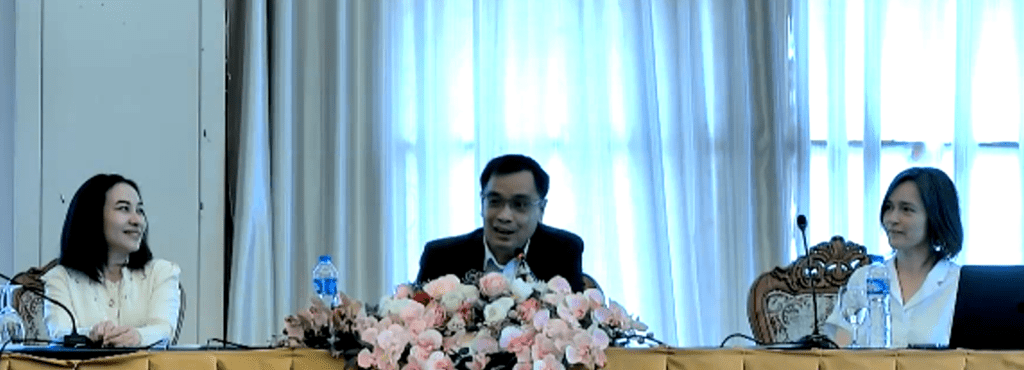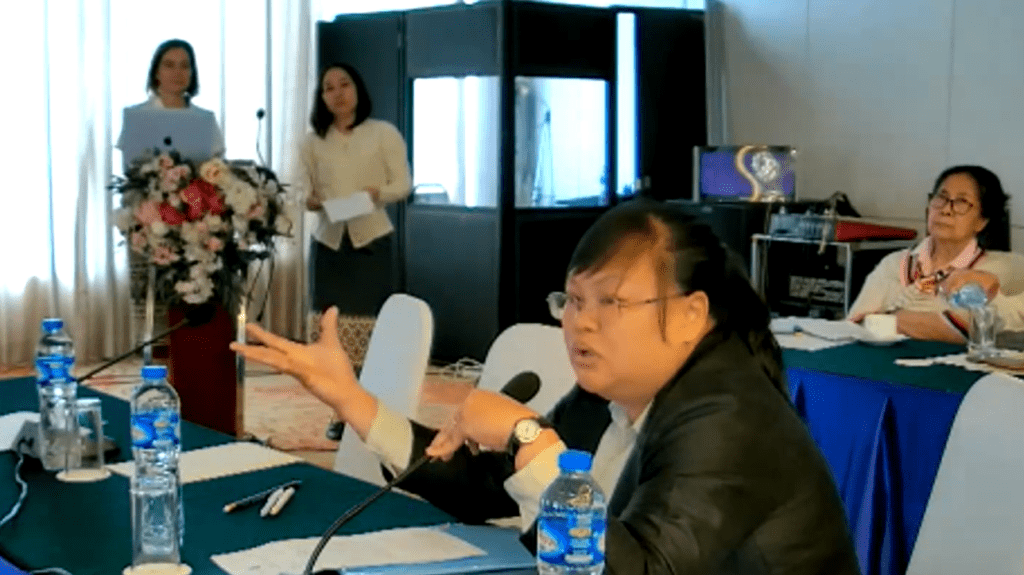What happens when we put birth and parenting at the centre of our understanding of being human? What do women giving birth draw on when they are put to their extremes?
These questions underpin a collaborative research project launched in Vientiane on 31 August 2023 under the title “Culture, birth and parenting in Lao PDR”. Our research departs from the assumption that women in rural and remote Laos already have great knowledge about birth and parenting, and that research is best if it is respectful of that knowledge. Our approach is one of openness and appreciation of Lao cultures, rather than being critical and pointing out problems that may exist in the realm of mother-and-child health care.
Our kick-off meeting gathered Lao representatives from government and stakeholder organisations with expertise in mother-and-child health in Lao PDR. My lead research partners from the Lao University of Health Sciences, Professor Mayfong Mayxay and Dr Sysavanh Phommachanh, my PhD student Amelie Katczynski from Deakin University, and I spoke about our research plans, methods, objectives, and anticipated benefits. Via break-out groups, we asked people to discuss our research questions and what they thought we needed to know about birth and parenting in Lao PDR. The event was framed by a welcome address from Professor Emma Kowal, Deputy Director of the Australian Alfred Deakin Institute (the institutional home of our project), and closing comments from our research partner Tara Gujadhur from the Traditional Arts and Ethnology Centre in Luang Prabang. Emma endorsed our study of birth and parenting as issues of crucial importance for populations in Lao PDR and around the world, and Tara appreciated that this project seeks to understand people’s behaviour first, before jumping in to try and change it.
To develop such an understanding, our two-year project combines four major components. First, to learn about traditions and cultures of birth and parenting in Laos, we are reviewing existing literature, with a focus on Lao language texts. To see how this (or other) cultural heritage exists in rural and remote Laos today, we will conduct long-term, in-depth ethnographic observations in rural villages in the country’s South. Our in-depth observations will be accompanied by rapid collaborative fieldwork visits to villages in central and northern Laos, to gain a broader sense of existing diversity of cultures of birth and parenting. In addition, a PhD student from Deakin University will study experiences of students in mother-and-child health in Lao PDR, especially those who will be intending to work in rural and remote Laos. The aim is to understand what knowledge students bring to their training and how this sits with what they learn in their formal training. A Master’s student from the Lao University of Health Sciences will also receive funding to conduct a study within the scope of the research project.
Outputs of this research will come in different formats. Museum collections around the world rarely showcase birth and parenting as cultural heritage, and few actually hold cultural artefacts related to birth and parenting practices. To address this gap, we are partnering with the Traditional Arts and Ethnology Centre in Luang Prabang to organise an exhibition based on our research findings. This exhibition will also travel to Australia and will be accessible online to a wider audience. We will publish scholarly journal articles and books intended to improve global knowledge about birth and parenting, and provide reports to local stakeholders to help improve mother-and-child health care in Lao PDR.
I want to thank everyone involved in this kick-off meeting and am looking forward to ongoing conversations and engagements over the course of the project!
I wish to acknowledge the main funding body of this project, the Australian Research Council, and express special thanks to our Lead Partner the Lao University of Health Sciences, as well as our research partners at the Traditional Arts and Ethnology Centre and Birthwork Downunder.


